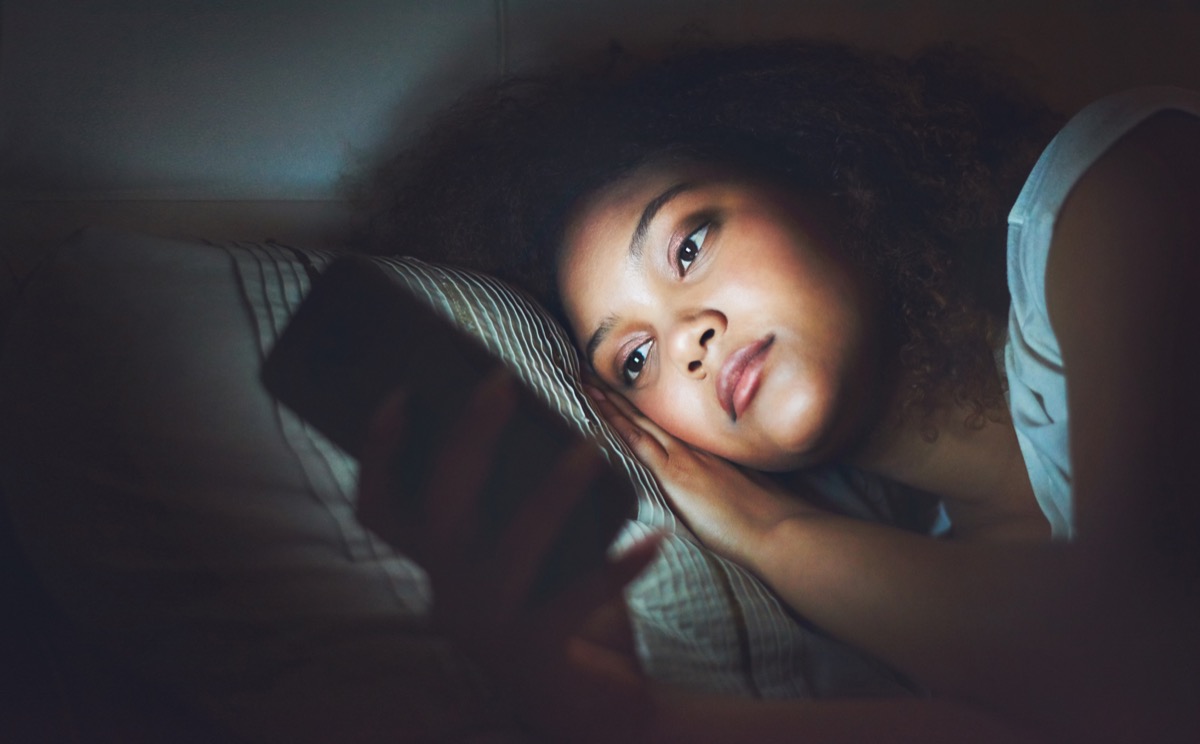“There is no substitute for sleep. Put down the electronics and wind down in the evening before heading off to bed for the best night’s sleep possible,” Nathaniel Watson, a professor of neurology with the University of Washington Medicine Sleep Center and former president of the American Academy of Sleep Medicine, told WebMD. Unfortunately, this bad habit is one almost everyone is participating in. A 2013 study published in the Journal of Clinical Sleep Medicine revealed that around 90 percent of Americans admitted to using some kind of electronic device within an hour of trying to go to sleep. But just how can looking at a screen right before bed affect your sleep? According to research and sleep experts, there are many different answers when it comes to how screens can make you sleep worse. For one thing, late-night screen time is keeping your mind engaged when it should be powering down for sleep. Harneet Walia, MD, a sleep disorders specialist, told the Cleveland Health Clinic that even a “quick check” of your phone before bed can stimulate your brain to a more active and awake stage, prolonging your wakefulness. And then there’s the issue of blue light. Most electronic devices—including phones, laptops, tablets, and televisions—use blue light, which can be detrimental in many ways, especially when it comes to sleeping. In fact, many studies, including one 2018 study published in Chronobiology International, have found that taking in blue light in the few hours before sleep actually suppresses melatonin, which is a hormone that helps regulate sleep times. Another 2018 study published in the Child and Adolescent Psychiatric Clinics of North America journal also found that screen time before bed severely decreased REM sleep. REM sleep, which stands for rapid eye movement sleep, is one of the four phases of sleep, known for being the stage that produces your most vivid dreams. According to the American Sleep Apnea Association, REM sleep plays “a role in the mental processing of the experiences of the day just past and the organization of memory.” That means decreased REM sleep can actually affect your memory. RELATED: For more up-to-date information, sign up for our daily newsletter. ae0fcc31ae342fd3a1346ebb1f342fcb So, when exactly should you turn your screens off before going to sleep? The National Sleep Foundation recommends you take at least 30 minutes of screen-free time right before you try to go to sleep—but the earlier you turn off the screen, the better. They recommend using reading as a substitution for screen time in the few hours before bed. “Reading an old-fashioned, printed book under lamplight (as opposed to bright overhead lighting) is a great choice. And using an e-ink e-reader (like the Kindle Paperwhite, as opposed to the Kindle Fire) is also a good idea, because it doesn’t produce the same type of blue light that a smartphone or tablet would,” they explain on their website. And for more ways to get the best rest possible, Never Put This In Your Body Before Bed If You Want to Sleep, Doctors Say.
